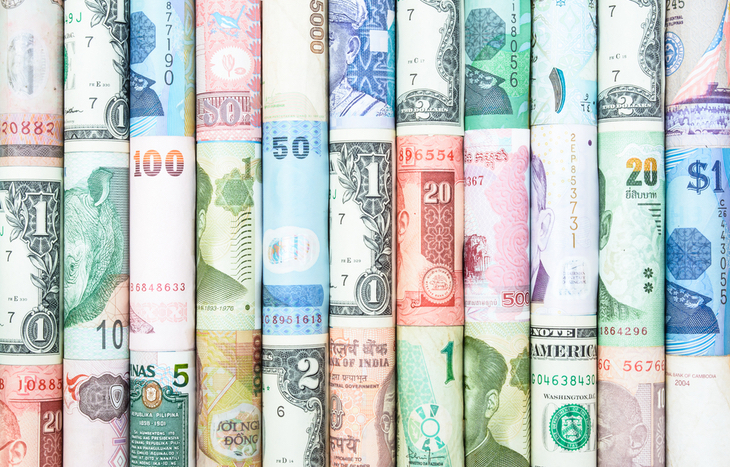Currency Trading: A Beginner’s Guide to Understanding Forex
Investors looking for a fast-paced market will feel right at home in currency trading. Forex markets operate 24 hours a day, five days-a-week. In fact, forex is the largest investment market in the world, with trillions in contracts traded daily. And, unlike stock markets that have thousands of listed securities, the bulk of currency trading occurs between some 20 global currency pairs.
There are many enticing reasons to invest in forex. For starters, the high liquidity of the market offers more trading opportunities. Transaction costs are also very low, even for retail traders. Retail traders also have access to leverage, giving them much more buying power on forex markets than they’d otherwise have. All this and it’s easy to see why forex is such a non-stop market.
For beginners interested in forex, it pays to understand what you’re getting into. While relatively straightforward, there are nuances traders need to understand. Let this be your basic guide to forex trading.

What is Currency Trading?
Currency trading doesn’t take place on a regulated exchange like stocks or commodities. Instead, it takes place on a global self-regulated exchange, between buyers and sellers of currency.
Those participating in forex can trade currency pairs. Every transaction on the forex market involves two currencies—or, the difference in value between those currencies. Base currency and quote currency form an exchange rate: the amount you pay to convert currency. Because the forex market is volatile, these rates change often.
The goal of forex trading is to leverage the relationships between currency pairs into returns over time. Traders “go long the pair” if they believe the base currency will grow stronger. Conversely, they’ll “go short the pair” if they believe the base currency will fall. Currencies are priced out by four decimal points, called pips. Traders monitor the bid-ask spread of currency pairs and trade based on changes in pips.
How Does The Forex Market Work?
Forex is self-regulated by currency buyers, sellers and traders. While the volume of trades and significance of exchange are the main drivers of liquidity in the market, there are many global factors that affect currency prices themselves. For example, some of the biggest include:
- Economic instability in countries
- Political or monetary policy
- Interest rates and inflation
- GDP, including imports and exports
These factors influence the value of currencies relative to others they’re paired with. For instance, if a country lowers interest rates and increases imports, their currency value is liable to rise. This opens the door for specific types of forex trading, such as currency carry trades.
Currency as an Asset
When you trade forex, you’re not actually converting USD to JPY or GBP. Instead, forex is purely speculative. You’re trading the volatility of the relationship between two currency pairs.
Take EUR/USD for example. If the United States appears to be headed for a recession, you might go long, betting that the exchange rate could move more in favor of the EUR. If it does, your return is equal to the investment vs. pip change in the bid-ask quote. All of this happens on the computer, you haven’t actually moved currency around. It’s all about credit agreements.
Most retail traders trade micro- and mini-lots. This is representative of 1,000 and 10,000 lots of base currency.
The Benefits of Forex Trading
Forex trading benefits from great liquidity. With almost 24-hour trading, five days-a-week and low average time in positions, forex is the most liquid investment market in the world. There are trillions exchanged daily and constant fluctuations in bid-ask prices. It means there’s always opportunity for traders. This availability is also a benefit, since traders can trade at their leisure.
While no regulation sounds like a con, it’s actually a big benefit for forex traders. A decentralized market is safeguarded from disruption and surprises. There’s also inherent stability in trading something as large as currency. Unlike a stock, which can shed value due to one piece of bad news, currencies are much more stable. Movement of more than a few pips is rare.
Leverage is also easier to come by in the forex market. Traders aren’t restricted to FINRA equity standards. It’s easy to leverage micro and mini lots into powerful buying opportunities. And, there’s plenty of volatility within the major currency pairs to sustain all types of trading at all hours.
Risks Associated With Currency Trading
Currency trading is often dominated by brokers. This means there’s a lack of transparency for retail traders. Retail traders may not get the best prices or have their orders filled in the way they want. That said, there are regulations that brokers must abide by. Even in an unregulated market, broker actions are still subject to financial regulation.
The other issue that many new forex traders encounter is the risk of leverage. Forex markets operate with 50:1 leverage. While this amplifies buying power, it can also open traders up to bigger losses and more risk. Capital allocation is a must-have skill. And risk management is paramount. This, coupled with high volatility across global markets, can make for a jarring introduction to currency trading.
The Bottom Line
Currency trading on the forex market is a great way to start investing. The simplified, straightforward concept of trading currency pairs is easy for beginners to grasp. Moreover, high liquidity and leveraging ability makes it perfect for retail investors.
Speculators and technical investors alike will find a home in forex. The volatility associated with this market offers opportunities for everyone. And, with 24-hour trades available five days-a-week, there’s consistent trade activity.
Forex moves fast, which can scare new investors. The upside is, it’s easy to learn in real-time. Eventually, that quickness becomes an asset. And, because there are no insiders in the forex market, anyone can find success if they take the time to learn.





